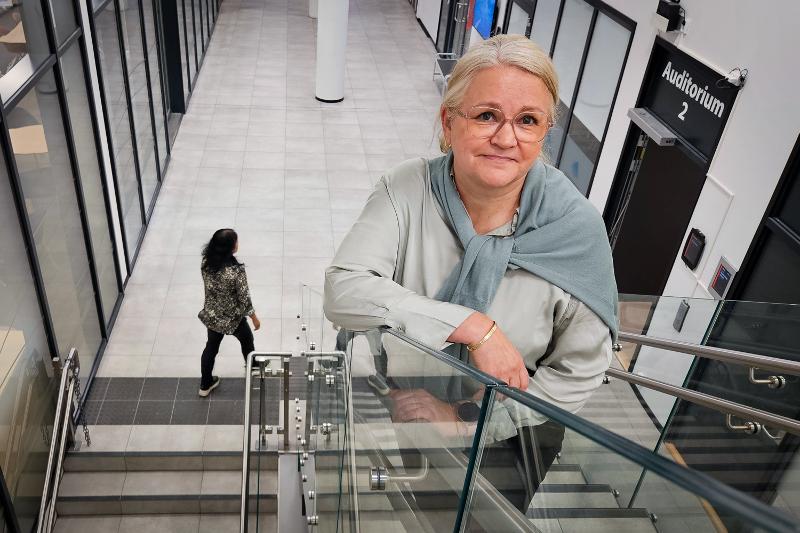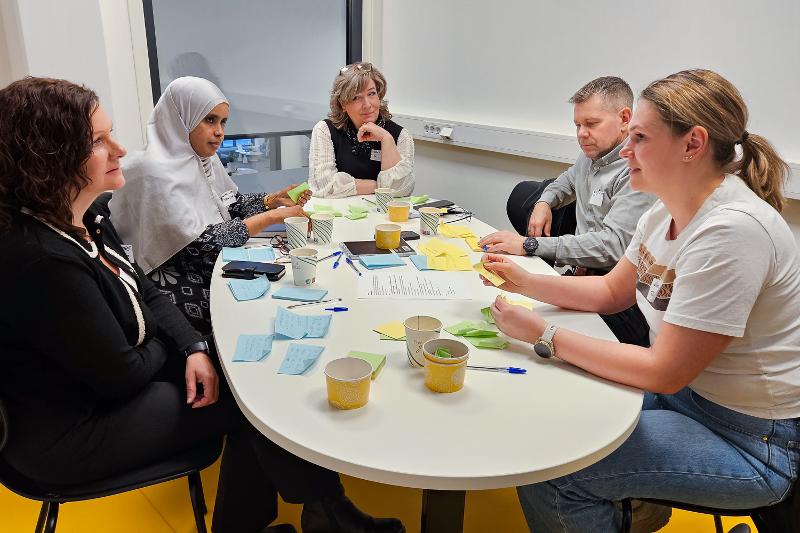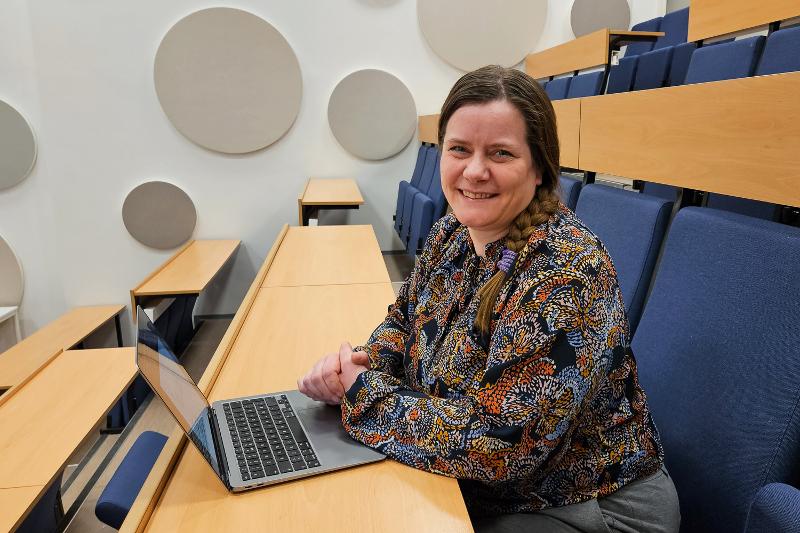Need Meeting Places – and Flexibility
After three dialogue seminars in HealthIntro, it is clear what the major need is for those working with refugees.

On January 30th, the third and final dialogue seminar in the research project HealthIntro took place. This time, it was the refugee service in Senja that had invited those working with refugees in the municipality.
The goal? To find out how they can improve the interprofessional collaboration with refugees in the municipality.
Same problem in all three municipalities
And the 28 participants from Senja had just as clear feedback as the participants in Harstad and Sør-Varanger had last year. The agencies working with refugees, such as the refugee service, medical offices, and the Norwegian labour and welfare administration NAV, do not know each other well enough. They do not know enough about how the others work.
Employees in the various agencies, for example, do not know who they can contact across the different agencies to resolve individual cases, and they know little about the rules and laws that the municipal partners have to adhere to. The refugee service, for example, has one set of laws to work with, and the health service another.
The different agencies simply need to get to know each other better to collaborate more effectively.
Joint Professional Development Days
We meet Linda Nilsen after the full-day seminar. She is the department head in the refugee services in Senja municipality. After many hours of fruitful discussions, she is almost completely dazed - but very satisfied with the day.
"Everyone has made a tremendous effort, and it was very inspiring. I have met people across departments and sectors, and I have received very good feedback during the breaks."

You have spent an entire day on this. It's a lot of time and many people. What do you take away from this dialogue seminar?
"First of all, we have gotten to know more people. We have a shared need for professional development days, for more information, and for communication across sectors. And that we now create some concrete measures, perhaps with some teams and new arenas for the future."
And if you look a bit further, into the crystal ball. What is your dream scenario for the introduction program, let's say in five or ten years?
"It all depends on where the refugees come from and what needs they have. But we need more opportunities for adaptation, we need more flexibility. We need to be able to decide for ourselves what we can offer in the municipality, and then tailor the program accordingly," Nilsen concludes.
Clear Recommendation to Norwegian Municipalities
Gunn Elin Fedreheim leads the sub-study in HealthIntro that focuses on collaboration. She has coordinated the dialogue seminars in all three participating municipalities in and sees clear similarities between Senja, Sør-Varanger, and Harstad.
They largely have the same needs. The shoe pinches in the same place.

"It really comes down to collaboration and getting to know each other. Another example today was just getting the organizational chart in the municipality in place, with people on it. And it is quite consistent that everyone, in a way, struggles a bit with knowing who we should contact. Who are all the actors here, really? Because there are so many involved."
Do you have any recommendations you can already pass on to the rest of the municipalities in Norway?
"It is about creating meeting places. There is an extreme need for that. All three municipalities praise the initiative of having such a dialogue seminar. And that is exactly what they point out when moving ahead as well. We need to meet to get to know each other, so it is important to create those meeting places. But then you have to create space for it in everyday life", Fedreheim concludes.